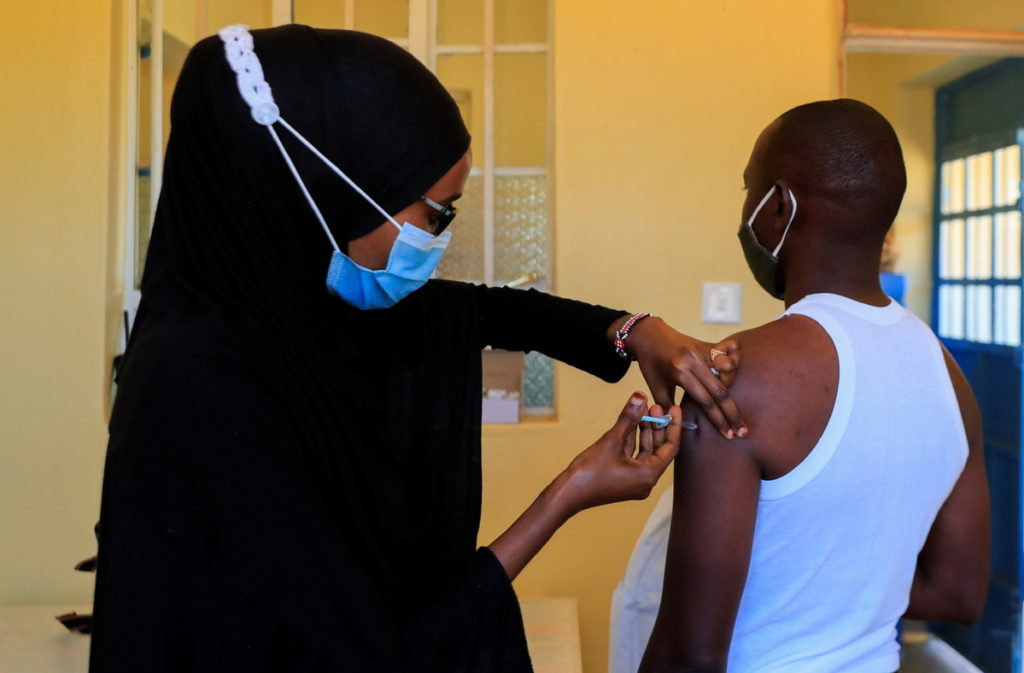As with other countries, the global health crisis has had wide-ranging effects on East Africa’s largest economy, ranging from health and economic implications to political and even cultural effects.
Kenya is facing an upsurge of infections from more transmissible and deadly virus variants against the backdrop of the hoarding of vaccines by rich economies, which has made it difficult for Nairobi to gain access to vaccines. As of Aug 19, more than 4,400 Kenyans infected with COVID-19 had died, with total cases standing at 225,663, according to the Ministry of Health.
Meanwhile, social restrictions aimed at cutting community transmission of the disease are taking a toll on the economy, with millions of jobs already lost to the pandemic. The International Monetary Fund has reported that Kenya’s economy registered disappointing growth of minus 0.1 percent in 2020, compared with buoyant pre-COVID-19 economic expansion of 6.3 percent in 2018 and 5.4 percent in 2019.
With vaccination seen as the key to recovery from the pandemic, Kenya has set the ambitious target of inoculating 16 million people by June next year. However, even as advanced economies begin administering booster shots against the advice of the World Health Organization, the dream of developing countries like Kenya to vaccinate their most vulnerable people could be cut short.
As of Aug 18, only 767,602 people in the country had been fully vaccinated, with vaccine doses administered in Kenya totaling 2,221,704.
This is why the approval of the Sinopharm vaccine for use in Kenya is important.
First, China had pledged to supply more than 10 million vaccine doses to poor countries through COVAX, the international initiative to provide vaccines to developing countries. So Kenya now has a chance to receive vaccines donated by China.
Second, with a strong pandemic control program, China, which has administered more than 1.9 billion COVID-19 vaccine doses at home, has a better chance to assist developing countries in gaining access to vaccines. China has promised to provide vaccines as a global public good.
Third, China is already collaborating with African countries such as Morocco to manufacture Sinopharm vaccines on the continent. This significantly reduces the cost of transportation and logistics for countries like Kenya-further enhancing access.
China has so far sent 52 million vaccine doses to 37 African countries, including 8 million donated doses, according to Beijing-based Bridge Consulting. The approval of the Sinopharm vaccine’s use in Kenya paves the way for both purchases and donations of vaccines from China.
Kenya is now set to receive 2 million doses of Sinopharm vaccine, with the first 200,000 donated doses expected in September.
Even before the first COVID-19 case was reported in Kenya in March last year, Kenya and China had witnessed robust cooperation on containing the pandemic. China assisted in training Kenyan health experts on how best to leverage nonpharmaceutical approaches to control the virus.
China was also the main source of essential medical supplies such as protective clothing, test kits, face masks and shields, respirators and medicine. Kenya benefited from donations as well as direct purchases of such supplies from Beijing.
As the pandemic proved economically devastating for Kenya, China came to the nation’s aid by rescheduling debt repayments so that Nairobi would have enough resources to fight the disease.
Earlier this month, Kenya, along with China and 22 other countries, launched the International Forum on COVID-19 Vaccine Cooperation, with the aim of galvanizing international synergy to provide poor countries with vaccines.
Besides calling for increased vaccine production to address the access gap, the forum also created momentum for synergy in the pandemic fight. That momentum will increase now that Kenya has approved the use of the Sinopharm vaccine.
